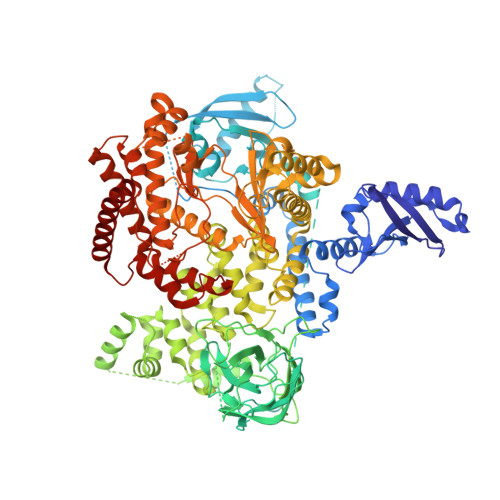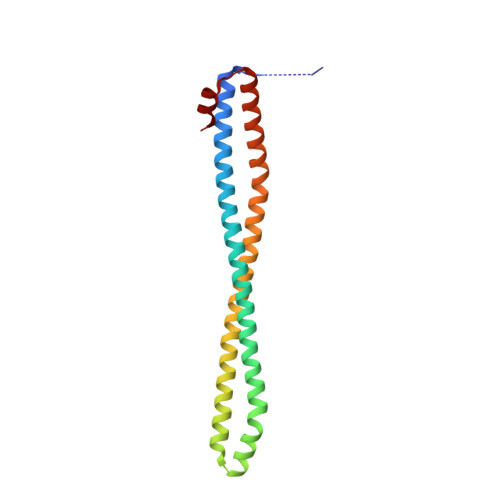Design of selective PI3K delta inhibitors using an iterative scaffold-hopping workflow.
Fradera, X., Methot, J.L., Achab, A., Christopher, M., Altman, M.D., Zhou, H., McGowan, M.A., Kattar, S.D., Wilson, K., Garcia, Y., Augustin, M.A., Lesburg, C.A., Shah, S., Goldenblatt, P., Katz, J.D.(2019) Bioorg Med Chem Lett 29: 2575-2580
- PubMed: 31416665
- DOI: https://doi.org/10.1016/j.bmcl.2019.08.004
- Primary Citation of Related Structures:
6PYR, 6PYS, 6PYU - PubMed Abstract:
PI3Kδ mediates key immune cell signaling pathways and is a target of interest for multiple indications in immunology and oncology. Here we report a structure-based scaffold-hopping strategy for the design of chemically diverse PI3Kδ inhibitors. Using this strategy, we identified several scaffolds that can be combined to generate new PI3Kδ inhibitors with high potency and isoform selectivity. In particular, an oxindole-based scaffold was found to impart exquisite selectivity when combined with several hinge binding motifs.
- Computational and Structural Chemistry, Merck & Co., Inc., Boston, MA, USA. Electronic address: xavier.fradera@merck.com.
Organizational Affiliation:


















